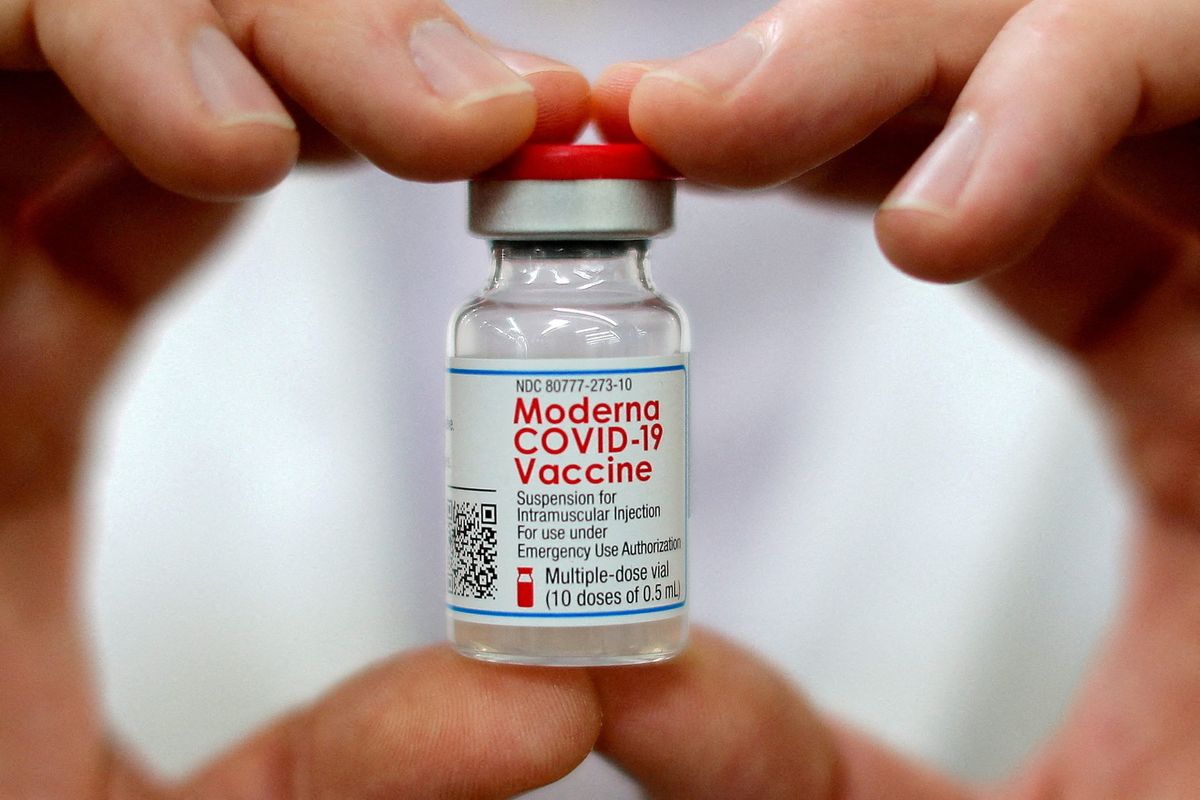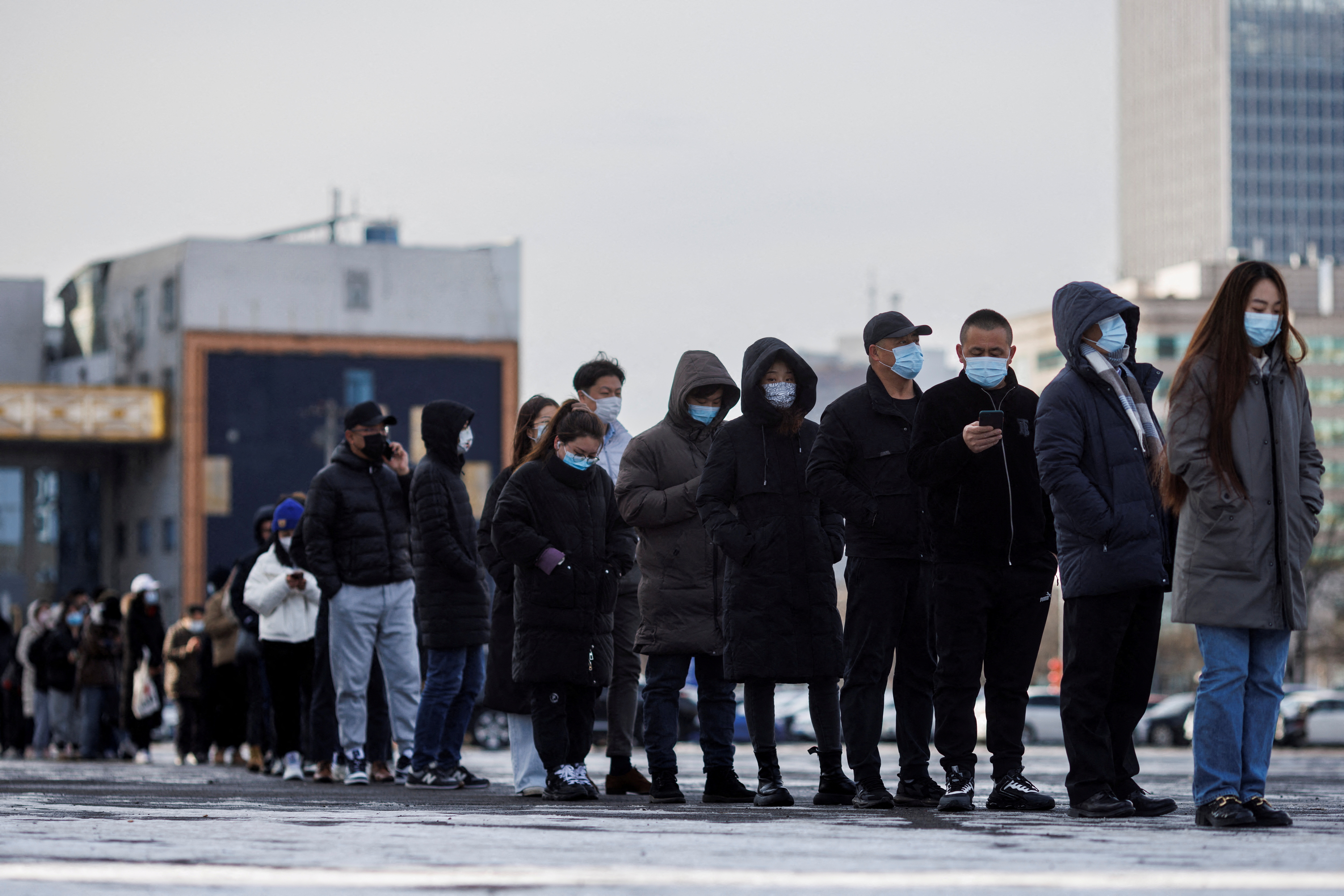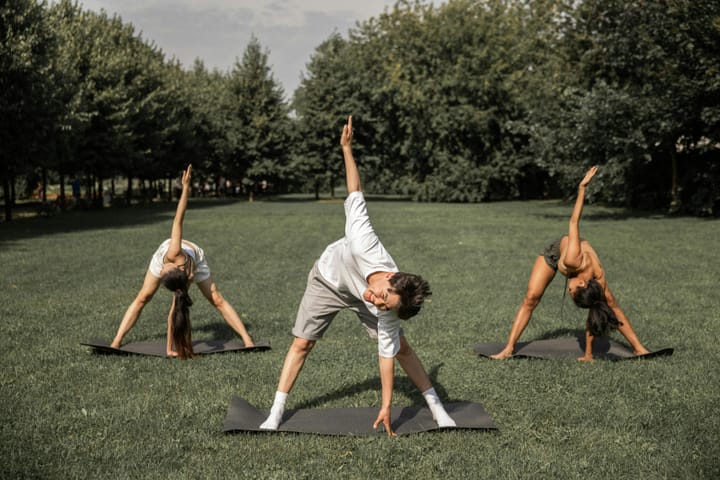Public health expert speaks on how far we’ve come since the start of the COVID-19 pandemic

A few minutes every morning is all you need.
Stay up to date on the world's Headlines and Human Stories. It's fun, it's factual, it's fluff-free.
So before looking ahead, it’s worth looking back at the progress we’ve made in the past two years since the pandemic hit and swept across the world.
When was COVID-19 declared a pandemic?
- It’s been over two years since we first discovered the virus.
- The first cases were detected in December of 2019 in Wuhan, China. On January 30, it was declared a public health emergency by the World Health Organization (WHO). Then, on March 11, the WHO declared it a pandemic.
- According to Dr. Jessica Holzer, an assistant professor for health administration and policy at the University of New Haven in Connecticut, the first indications of the virus in places other than China happened even before then.
- So before looking ahead, it’s worth looking back at the progress we’ve made in the past two years since the pandemic hit and swept across the world.
What were public health systems like before the pandemic hit?
- One major failure that Dr. Holzer pointed to was a lack of stockpiled personal protective equipment (PPE) such as masks and gloves in the United States.
- “Our national stockpile of PPE was out of date – it hadn’t been refurbished after significant demands on it,” she said. “And then also, you know, expiration dates of some of the equipment had gone out of date.”
- Dr. Holzer said she suspected this was more likely a cost-saving measure than anything else.
- But one thing she mentioned that was impressive was the ability of scientists to sequence the genome of the virus.
- According to her, this “meant that labs across the world, without respect to patent, without respect to anything like that, were able to immediately develop PCR tests, which is part of the reason that we were able to ramp up testing.”
- Dr. Holzer added that when it came to virus prevention, the only thing better than being able to test and trace for a virus is actually to prevent it altogether, which, at the time, wasn’t possible.
What about the initial response?
- “If you think back to what the conversation was then it was around things like travel bans … like just beginning to start tracking,” said Dr. Holzer.
- But she said that these kinds of conversations mainly took place after the virus had, in some capacity, spread from its origin to other countries, making those policies relatively ineffective.
- “[The United States] instituted the travel ban,” she said, “but we didn’t really think about how disease moves across the world.”
- She also said that there were other social factors that got in the way of effective measures.
- “One of the key challenges of the initial response is that it was very politicized, especially in the United States.”
- “We were looking a lot at how China was behaving,” she said, “and China’s government, it just has a different relationship with its people and was able to do things that in the United States we never did.”

What about the COVID-19 vaccine?
- Dr. Holzer said that the speed of vaccine production was “remarkable” when you compare it to the speed at which the next quickest vaccines in history were created.
- Before the COVID-19 vaccine, the fastest vaccine ever developed took four years. The COVID-19 vaccine, on the other hand, took less than 12 months to be developed after genome sequencing.
- “The reason that that’s remarkable is because that is an amazing human achievement,” said Dr. Holzer. “It’s remarkably lucky.”
- She said that vaccination was the most significant accomplishment achieved in the public health sphere since the pandemic started. Now, more than 60% of the world population has had at least one dose of the vaccine.
- In addition to the vaccine, though, Dr. Holzer pointed to the fast development of therapeutics as a major accomplishment worth celebrating.
- “Vaccination sort of takes all the oxygen out of the room, and we spend a lot of time talking about vaccination, but it’s worth recognizing that we also have, at last count, I know there were three different monoclonal antibody treatments.”
What’s next?
- Dr. Holzer said the question of the next pandemic “is not an ‘if,’ it’s a ‘when,’ so preparation is not optional.”
- She said that part of the reason regions and countries had and continue to have so much trouble with COVID-19 is because of the regular defunding of public health infrastructure for decades. “We are paying for the choices of our forebears.”
- However, the truth is that this pandemic isn’t over, at least not yet. Global COVID-19 infections have just come off of the highest peak yet, with more than 360 confirmed cases per million people being the norm over the past several weeks.
- “Disease transmission is the history of human civilization and human motion,” said Dr. Holzer. “And so just respecting that, and preparing for that and appreciating what is actually science based policy to limit disease transmission, it’s not necessarily going to be obvious.”
- “You have to sort of respect what might be going on and sometimes not make the easy move, but instead make the right move.”
You drive the stories at TMS. DM us which headline you want us to explain, or email us.







Comments ()